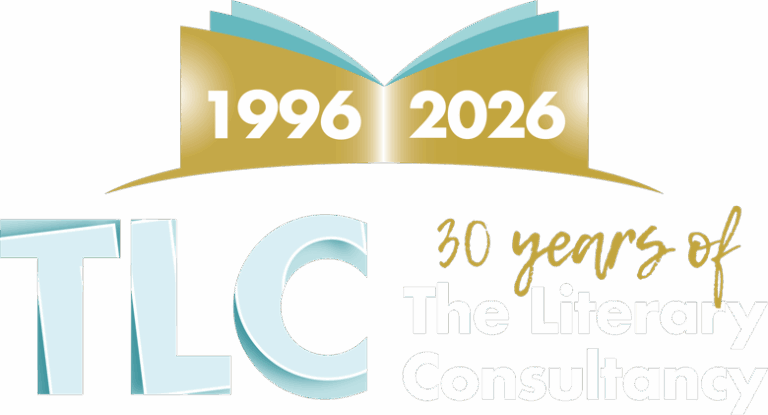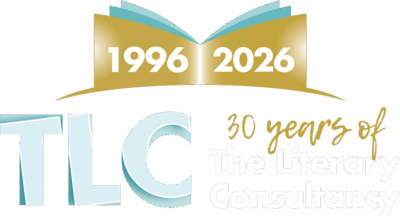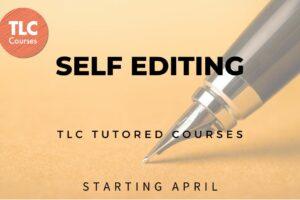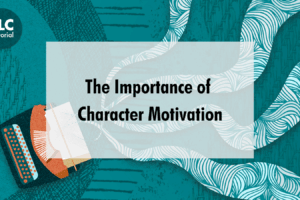This excerpted speech was originally presented as a keynote at the National Writers’ Conference on 10th June 2017 at the University of Birmingham, hosted by Writing West Midlands. The speech can be accessed in full at the Writing West Midlands website here
In 2016 TLC turned 20. In that landmark year we had the privilege of seeing our clients and editors win prizes, be selected in Books of the Year lists, sign contracts with agents and find publication deals, have films made of their work, and self-publish well produced, well edited books with confidence. We held editing and self-editing workshops at our base the Free Word Centre, provided writers’ bursaries to low earning and under-represented writers through our Arts Council England-funded Free Reads scheme co-ordinated by 17 excellent regional literature partners, as well as bursary tickets and travel to TLC events, with guests including Juliet Mushens, Elif Shafak, Kit de Waal, Abi Morgan, Margaret Busby, Jacob Ross, Lemn Sissay, and Amy Liptrot, to name but a few.
That gives perhaps just a taste of what we do at TLC, and the legacy left by our founder Rebecca Swift’s visionary thinking – there was no service like TLC in the world before us – and the legacy she has left us: the literary world, the writers she so fiercely championed, and me, to whom she entrusted the company which I love with the same fierceness because what we do, what we all do in the literature development world, is now just as important, if not more so, than when TLC was founded 21 years ago.
“It’s an exciting time to be a writer, and an important time.”
Our strapline, from which the idea for this keynote was formed, is ‘literary values in a digital age’. And the title of this keynote is ‘Literary values: a legacy, and a commitment to the writers of the future.’ Perhaps it should read, ‘to the writers and the writing of the future’, as that is what we are most concerned about, and where the literary value lies. It’s an exciting time to be a writer, and an important time.
At TLC we examine the gap between the millions of writers writing, and the still astonishing 180,000 or so books that are published in the UK – more books per capita than any other country, with the publishing industry contributing over £10bn a year to the UK economy. Further digging reveals a worrying steady decline in consumer spending in fiction, down 23% since 2012. The appetite for writing, however, remains. And this despite a professional writer’s average income hovering at the £12,000 p/a mark, with only 11.5% earning their living solely from writing. I am encouraged however, and convinced, that there will always be people wanting to write, even, in some cases, needing to write.
The reasons writers write seem to endure – I write because I want to express myself, I write to tell stories, I write to be read – but the literary aims and aspirations of writers have been enormously changed by the democratising advent of digital and independent publishing. At last count, indie (as in self-) publishers held roughly 1/5 of the e-book market. And hybridity seems to be key, too, with many authors combining traditional with independent models. With so many titles on the market, however, the question of literary value is one that comes with warning bells. I have heard indie author advocates insist that the market is not ‘flooded’ with rubbish, but it seems to me impossible that this accusation not be genuinely heard against a dangerously evangelising attitude that insists a title deserves to be in print simply because someone wants it to be. I’ll come back to this point a little later.
“…in order to create new and exciting opportunities for great works of literature, we need to be open to the possibility of failure. We can only create space for the possibility that we might experience wonder in such an environment – one open to risk, to chance, and to experimentation.”
My own feeling is that in order to create new and exciting opportunities for great works of literature, we need to be open to the possibility of failure. We can only create space for the possibility that we might experience wonder in such an environment – one open to risk, to chance, and to experimentation. Independent presses are doing fabulous work experimenting with style and formats in today’s publishing landscape, even though in commercial terms they are the ones set to lose more, and their bravery and energy is enormously boosting the value of the UK’s literary output as well as the diversity of literature in the UK, with everything from the runaway bestseller The Good Immigrant, championed by crowd-sourcing publisher Unbound, to Dead Ink Books’ anthology of working class voices Know Your Place, to OWNIT!‘s ambitious transmedia publishing model that encompasses original music, graphic design, video animation, and works in print by writers from backgrounds not usually picked up in the mainstream but absolutely vital to the value of our literature.
Hybridity is a keyword too, when analyzing the burgeoning digital world, and those who use technology cleverly can open up all sorts of worlds to new ways of having readers experience stories, from narrative-led gaming incorporating the poetry of Keats and Shelley in Elegy for a Dead World to Canongate’s new experience-led website which shuns book pricing in favour of interesting additional content around its titles. And in analogue, the idea of literary value as the encapsulation of a moment or series of moments in several dimensions is played with, for instance by companies like Colliding Lines who produced Abi Palmer’s award-winning handmade Alchemy poetry box based on Robert Boyle’s challenge to classical Alchemy in 1661. Further afield in Iceland, the press Tunglið creates beautiful print runs of 69 copies of each of its title on the night of a full moon, and burns any unbought titles. The publisher says it “opposes the eternity that the average publisher promises—all those books whose pages turn yellow on the bookstore shelf—and makes a stand for the beauty of the moment.”
I think we all ought to make a stand for the beauty of the moment, and to seek out the literature and stories that best do so. And as Toni Morrison says, “if there’s a book you want to read, but it hasn’t been written yet, then you must write it.”
“I think we all ought to make a stand for the beauty of the moment, and to seek out the literature and stories that best do so. And as Toni Morrison says, ‘if there’s a book you want to read, but it hasn’t been written yet, then you must write it.'”
And when we do write, I think we must continue always to ask ourselves:
Is what I am writing any good?
Even though it is changeable, we see literary value as something ultimately to be preserved and guarded fiercely. In this brave new world where the relationships between text and meaning, reader and writer, and writer and publishing platform are being constantly collapsed and re-configured, we have seen two things happening in tandem.
- Writers are now more empowered than ever to publish their work whatever that work might be. The advent of Amazon, whatever we might think of it, has been both revolutionary and democratizing for authors wanting to take matters into their own hands, and some have proved themselves both durable in this environment and hugely successful (this is wonderful)
- Writers in many instances now feel that because it is possible to publish anything, effectively in any state, they are therefore entitled to publish anything, in any state, and that this very process makes their work as valuable as any other thing that is published (this is problematic).
We can’t look at these processes happening without talking about curation and gate-keeping. This isn’t a debate about whether they are necessary and will always be necessary: there is neither time nor crystal ball to do that. For now, I believe they are, and I also believe that recent moves in the digital world prove this, with various attempts including KindleScout and Amazon’s own lists proving that there is a need to somehow sift through what is out there and that the only way to do this is to start streaming the ‘content’ (that dreaded, awful word). It is easy to argue hotly that the idea of curation is outdated, outmoded, and whiffs of elitism, I don’t think it’s simply literary snobbery at work that tells us which titles are ‘worth’ more of our investment – of time, imagination and money – than others.
If our time is well spent reading a book, it is of value to the reader. This much to me is undeniable, and it means not a jot whether that is a Dr Seuss or Simone de Beauvoir, 50 Shades or Dostoyevsky. But there is also the wider question of how important a book is to the society into which or about which it is written. Its value in the context of posterity by way of what it says about how we live, and how we might yet live. And as Andrew discussed this morning, this kind of literary value, the political and the societal, is now more important than ever.
“If our time is well spent reading a book, it is of value to the reader.”
Research conducted by the Royal Society of Literature and released in March of this year in the Literature in Britain Today suggests that readers recognize this too, with 81% of respondents agreeing that literature plays an important role in social cohesion, allowing us to understand other points of view. Regardless of reading habits, preferences and frequency, the value of literature to society is overwhelmingly felt.
*
We in this room are all (or mostly) writers, but we cannot afford to forget that we are readers, too. Perhaps even readers, first. And that is part of a commitment all of us who believe in preserving literary value must make, and must pledge to keep making. To read, to buy books, to support bookshops, and to support writers by being their readers and by being open to the possibility of a range of voices, experiences, and worlds. Books make us better humans, and they make us better writers. We cannot be writers of any value if we do not listen and engage with what else has been written and is being written. I so strongly resist the idea that a writer in today’s world can simply lock themselves away in a shed and write daily. The writing life is different today because life is different. And life is what gives us the material we need, the seeds that grow in our own imaginations into stories, the sense not only of building conviction and developing a voice that is ours, but also of questioning ourselves, checking ourselves, pushing ourselves; none of this can happen in a vacuum.
“We cannot afford to forget that we are readers, too. Perhaps even readers, first. And that is part of a commitment all of us who believe in preserving literary value must make, and must pledge to keep making. To read, to buy books, to support bookshops, and to support writers by being their readers and by being open to the possibility of a range of voices, experiences, and worlds.”
In his Royal Literary Fund keynote at the inaugural Bare Lit Festival last year, a festival celebrating BAME voices in UK literature, writer Courttia Newland talked about what he called ‘conscious listening’:
‘Conscious listening’, he said, is “the study of literature for us, created by us. It is a working knowledge of the fiction, poetry, films and plays that come before us, exist alongside us, and might emerge in the future. There’s nothing to fear about being knowledgeable about your artistic peers. No shame. In fact, it can bring great strength. […] we should not be attuned only to the sound of ourselves.” He was talking to fellow writers of colour, but I think this applies to all of us. We must all be attuned to our differences, as much as to the similarities that bind us. Courttia also implored readers to: “Read works deemed as classics by all means, but claim some classics among writers who are also like us.” Literary value does not ascribe itself only to one voice of literature. It must contain the pluralities that reflect the many versions of who we are as individuals and communities. And to establish ‘classics’, works of value, that represent this plurality, we must continue to nurture, develop, and champion the work of all voices, views, and cultures.
Writing is one of those funny practices that people have always have had a rather ambivalent relationship with, one caught somewhere between reverence and disrespect. In the early days, pre-printing press, it was the scriptoria who painstakingly produced illuminated manuscripts written by monastic scholars, and these were distributed to a select, exclusive community of people. The arrival of the printing press meant mass distribution was easier, and the print value of a text suddenly shifted its literary value. It also meant that the style of work that could be printed was flung suddenly wide open. Then with the 90’s the golden age of publishing was coming to a close just at the moment the internet was starting to take off, and digital disruption brought both exciting possibilities for writers and once more shifted the idea of literary value and brought it into question, as much as it did the very notion of what a book is and ought to deliver on. We’ve all read the headlines that come back around again and again: the novel is dead, print is dead, long live novels and print. The ambivalence remains, dotted occasionally with moments of innovation, and moments of collapse.
But in most cases where we at TLC have seen that ambivalence slide into disrespect, which is the thing that most threatens the literary value of our writing, this is tied into a sense that the writer in question is listening only to themselves. And in all instances where this is the case, the literary value of their work has been undermined by this deafness. It doesn’t allow for context, and for a consideration that:
- Not everything written needs to be published (writers must allow themselves generosity when thinking about what ‘must’ be done with their writing – some books are practice books, and that is fine. Some books are private projects, and that is fine.)
- Not everything written should be published (which I think speaks for itself)
but also that - The possibilities of improving your writing, across one book or several writing-related projects, are just as myriad as the possibilities – the very real and very exciting possibilities – of finding sympathetic readers for your writing, whether that be an esoteric state of the nation narrative poem, a self-help manual on overcoming a phobia of cucumbers, a memoir of personal grief, or an epic fantasy novel set in intergalactic Swansea … the possibilities to connect with readers, are there.
Everyone can publish. That is revolutionary.
Everyone can publish. That is problematic.
These are really just two sides of the same coin.
And in a similar way, I think literary value as a scholarly, ascribed notion descending from the lineage of aesthetics is on the one hand a terribly old-fashioned notion, and on the other at a base level is a process that can push against itself, re-define itself, without losing a sense of its importance in a world flooded – flooded rather beautifully, I think – with writers writing more than ever, more fervently, more variously, and in times like these, uncertain and filled with societal and political pressures, more urgently.
In an interview last year with Free Word Centre on why she had chosen ‘the book inside’ as one of the key themes of our 20th anniversary programme, after the Hitchens quote ‘everyone has a book inside’ and the question of whether it ought to be kept there, Becky addressed this point and turned her lens outwards from the text, where we concentrate a lot of our time, to the writers. The writers of the future whom I mention in this keynote. She said:
So, my direct advice would be, be careful if you can, be canny, bide your time sometimes, don’t run unnecessary risks, but if you need to speak, or when the time is right, or if you want to, speak with as much fullness of mind and heart as you can muster – for somebody will be listening.
“We are all accountable for the writing of the past of which we are the archivists, of the present of which we are the librarians, and what is yet to be written of which we are the dreamers and the catalysts.”
We must all commit to preserving and continuing to analyse, intellectually and emotionally, what we consider to be the literature we wish to be remembered for, and by. And we must at the same time commit to an openness of spirit which will allow us to continue to interrogate what it means for writing to have literary value – to be discerning enough to allow the writing that will endure flourish and be enjoyed in its fullest impact. It is perhaps not fashionable to be a gate-keeper, but in fact I feel strongly that we all have that responsibility. We are all accountable for the writing of the past of which we are the archivists, of the present of which we are the librarians, and what is yet to be written of which we are the dreamers and the catalysts; because our response, our championing, our making noise about things written in various formats we love and we see value in, will shape the way that people write the works of the future. And this will shape the reasons they write, and give or deny permission to voices as yet latent, as yet undeveloped, or as yet silent or silenced. We are the ones who decide which are listened to, for we are the ones who must listen. And in doing so, we must continue to hold other ‘gate-keepers’ to account: our governments, our law-makers, our corporations, and in the arts sector our museums, libraries, and publishers.
But we mustn’t forget that when it comes to our literature, we are to hold ourselves to account.
So, if I might end with a plea, it would be this. Please, read, listen, and learn from the books you buy from bookshops or borrow from libraries, support them, and support each other as writers to push hard and strive for the best you can possibly write. And most of all, support tirelessly and fiercely where needed in our world of literature, what is necessary. What must be written and read. And I am certain, that what has value, what is great, will surely follow.








